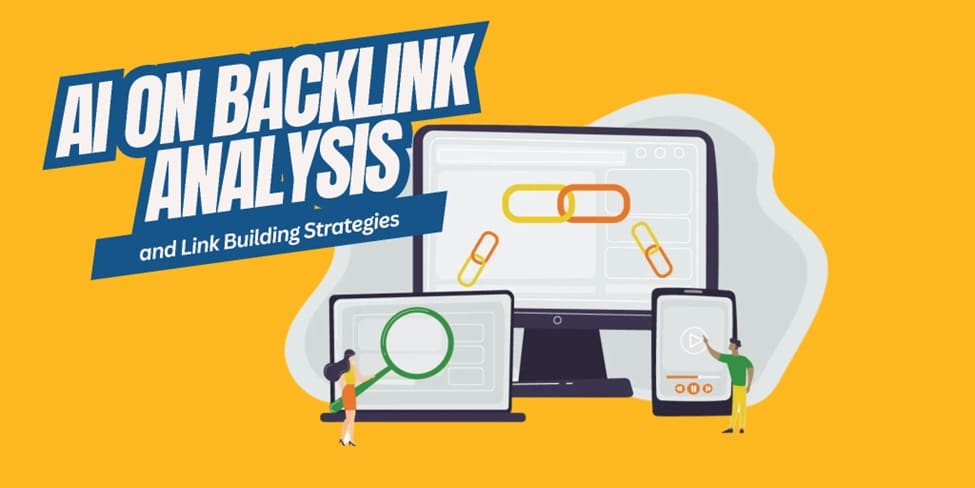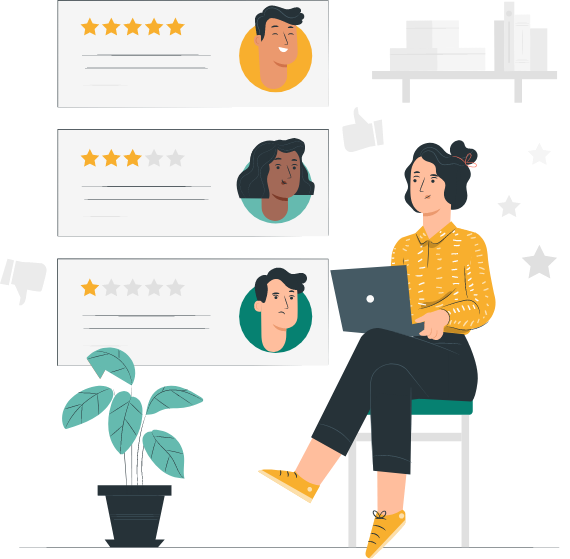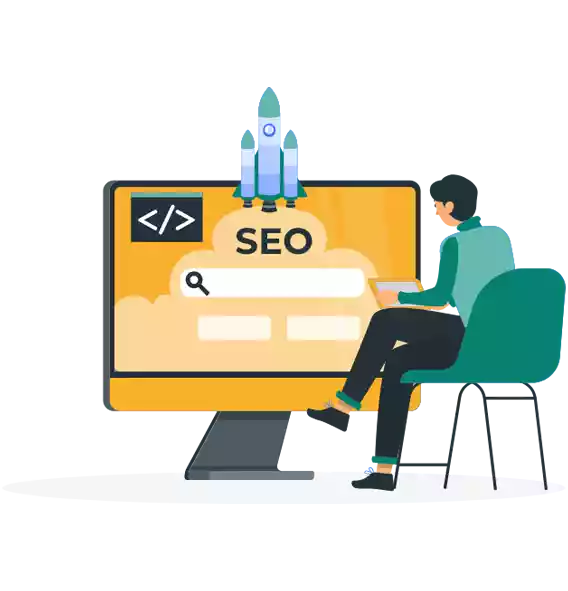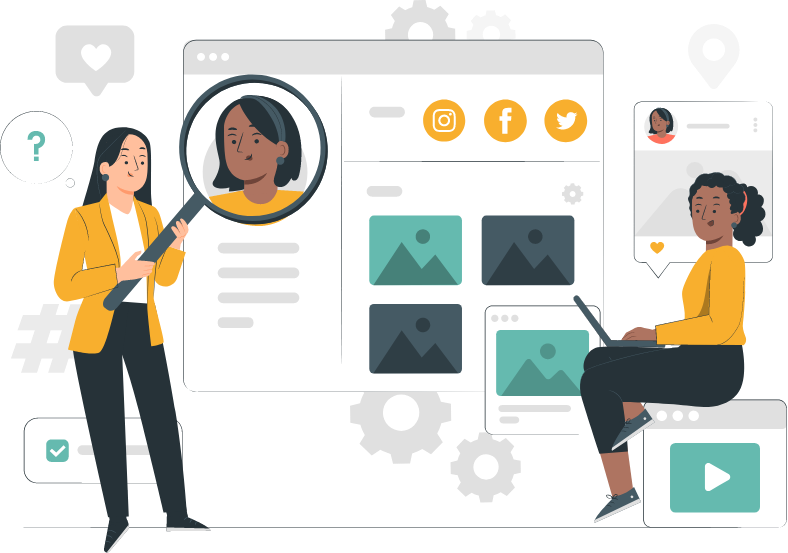Nowadays, the impact of AI on various facets of online marketing cannot be overstated. Among these, one area that stands out prominently is the realm of link building strategies. As search engines continually refine their algorithms and user expectations evolve, businesses and website owners are compelled to adapt their SEO approaches.
At the heart of this transformation lies the dynamic interplay between AI (Artificial Intelligence) and the strategies employed for creating valuable online backlinks.
The Evolution of Link Building
To comprehend the significance of AI’s role in contemporary link building strategies, it’s essential to take a step back and trace the path of evolution that link building has traversed. In the early days of the internet, acquiring backlinks was relatively straightforward. Website owners could engage in reciprocal link exchanges or simply buy links, often resulting in a quantity-over-quality approach. This simplistic approach gave rise to black-hat SEO tactics, which manipulated search engine rankings without providing genuine value to users.
However, the digital ecosystem has matured, and search engines like Google have become more sophisticated in their ranking algorithms. Quality and relevance have overtaken quantity as the prime factors for success. Consequently, traditional link building strategies underwent a seismic shift. Website owners and SEO professionals had to pivot towards creating organic, high-quality backlinks that genuinely served the needs of their target audience.
The evolution of link building strategies mirrors the broader changes in the SEO landscape. It’s no longer enough to accumulate a vast number of links; the focus now is on building a natural and authoritative link profile. As we delve deeper into this article, we’ll explore how AI is catalyzing this transformation by enabling website owners to analyze backlinks more effectively, identify opportunities, and implement advanced strategies for sustainable online success.
Importance of Backlinks
Backlinks, also known as inbound or incoming links, are the hyperlinks from one webpage to another. They serve as a digital vote of confidence and trust. When a reputable website links to your content, it signals to search engines that your content is valuable and relevant.
Search engines, particularly Google, have long relied on backlinks as a key factor in determining the authority and credibility of a webpage. In essence, the more high-quality backlinks your site accrues, the more likely it is to rank higher in search engine results pages (SERPs). This makes backlinks an essential component of any effective link building strategy.
Traditional Link Building Strategies
Before the advent of AI-driven link building, traditional methods held sway. These techniques encompassed a wide range of practices, some of which were deemed legitimate, while others ventured into the realm of black-hat SEO.
One traditional approach involved the practice of reciprocal linking, where websites exchanged links to artificially inflate their link profiles. Another was guest posting, where content creators would write articles for other websites in exchange for a backlink. These methods, while once effective, eventually fell out of favor due to their susceptibility to manipulation and abuse.
Moreover, there was a time when websites could simply purchase links, a practice that violated search engine guidelines and led to ranking penalties when detected. The pursuit of quantity over quality was prevalent, with website owners more concerned about the sheer volume of backlinks rather than their relevance or the authority of the linking sites.
As a result of these questionable practices, search engines grew increasingly sophisticated in their algorithms. They started rewarding websites with natural and high-quality backlinks while penalizing those engaged in unethical practices. This shift in algorithmic focus marked a turning point, leading to the need for more strategic and ethical link building strategies.
AI in Link Building
With the digital landscape in constant flux, AI (Artificial Intelligence) has emerged as a transformative force in various domains, including link building. AI’s capabilities extend beyond mere automation; it empowers webmasters and SEO professionals with data-driven insights and the ability to make informed decisions.
AI-driven link building leverages machine learning algorithms to analyze vast datasets, enabling a more nuanced understanding of the backlink landscape. By processing and interpreting data at a scale impossible for humans alone, AI identifies patterns, trends, and opportunities that might otherwise remain hidden.
One of the key ways in which AI benefits link building strategies is through its ability to perform rapid and in-depth backlink analysis. Instead of manually sifting through countless links to discern their quality and relevance, AI algorithms can evaluate these factors with precision, saving valuable time and effort.
AI-Driven Backlink Analysis
The core of any effective link building strategy lies in the ability to scrutinize existing backlinks and identify areas for improvement. This is where AI shines. Its advanced algorithms excel at conducting backlink analysis, evaluating the strengths and weaknesses of a website’s link profile.
AI-driven backlink analysis encompasses several crucial aspects:
Link Quality Assessment: AI can determine the quality of backlinks by assessing the authority of the linking domain, the relevance of the linking page, and the anchor text used.
Competitor Analysis: AI tools can compare your link profile with that of your competitors, revealing gaps and opportunities to outperform them.
Identifying Toxic Links: AI algorithms can flag potentially harmful or spammy backlinks that might negatively impact your website’s SEO.
Content Relevance: AI can assess whether the content surrounding your backlinks aligns with your website’s niche, ensuring that your links are contextually relevant.
Predictive Analysis: By analyzing historical data, AI can predict trends in link building and recommend strategies to stay ahead of the curve.
In essence, AI-driven backlink analysis streamlines the process of identifying high-value opportunities and optimizing your link building strategies. It empowers webmasters to make data-backed decisions, enhancing the overall effectiveness and efficiency of their SEO efforts.
Link Building Strategies Enhanced by AI
As AI continues to make inroads into the realm of link building, it’s essential to explore the ways in which it enhances and elevates traditional strategies. The synergy between AI and link building strategies has given rise to a new era of optimization and precision.
AI-Enhanced Content Creation: One of the pivotal aspects of effective link building is the creation of high-quality, relevant content. AI-powered tools can assist in content generation, helping webmasters produce articles, blog posts, and other materials that resonate with their target audience. These tools analyze user behavior, preferences, and search trends to tailor content for maximum impact.
Personalized Outreach: AI-driven systems excel at analyzing data to understand user behavior and preferences. This capability extends to outreach strategies as well. By segmenting and personalizing outreach efforts, AI can increase the likelihood of earning backlinks from authoritative websites. It streamlines the process of identifying potential collaborators and crafting personalized pitches that resonate.
Predictive Link Prospecting: AI’s ability to analyze vast datasets enables webmasters to engage in more effective link prospecting. AI tools can predict websites likely to provide valuable backlinks based on historical data and existing patterns. This predictive approach saves time and resources by targeting websites with a higher likelihood of cooperation.
Content Optimization: AI-driven tools can continuously monitor and optimize existing content to align with evolving search engine algorithms. This ensures that your content remains relevant and authoritative, contributing positively to your link building efforts.
Challenges and Concerns
While AI offers numerous advantages to link building strategies, it is not without its challenges and concerns. As we embrace the AI revolution, it’s crucial to acknowledge and address these potential stumbling blocks.
Ethical Considerations: As AI becomes more integral to SEO, ethical questions arise. There’s a need to ensure that AI-powered link building adheres to ethical practices, avoiding deceptive or spammy techniques. Ethical guidelines should be established and followed rigorously.
Algorithm Changes: Search engine algorithms are constantly evolving. While AI can adapt, sudden algorithm changes can still impact link building strategies. Staying informed and agile is essential to navigate these changes effectively.
Data Privacy: AI relies on data, and concerns about data privacy are paramount. Ensuring the security and ethical use of data in AI-driven link building is essential to maintain user trust.
Over Reliance on Automation: While AI streamlines processes, overreliance on automation can lead to a lack of human oversight. Balancing AI with human judgment is crucial for effective link building.
Scalability: Implementing AI in link building strategies may pose challenges for smaller businesses with limited resources. Ensuring that AI solutions are scalable and accessible to all is a consideration for the industry.
Addressing these challenges is vital to harness the full potential of AI in link building. By striking a balance between innovation and ethics, businesses can navigate the evolving landscape and reap the benefits of AI-powered link building.
Practical Steps for AI-Enhanced Link Building
Implementing AI into your link building strategies requires a systematic approach. Here are some practical steps to get you started:
Evaluate Your Current State: Begin by assessing your current link building efforts. Identify strengths, weaknesses, and areas where AI can add value.
Choose the Right AI Tools: Research and select AI-powered tools that align with your goals. Look for features such as backlink analysis, content optimization, and predictive analytics.
Data Collection and Analysis: Gather relevant data about your website’s link profile, competitors, and industry trends. AI relies on data, so ensure it’s comprehensive and up-to-date.
Content Optimization: Use AI tools to optimize your existing content. This includes improving readability, keyword placement, and overall quality.
Personalized Outreach: Implement AI for personalized outreach campaigns. Craft tailored messages that resonate with potential collaborators, increasing your chances of securing high-quality backlinks.
Continuous Monitoring: Set up automated monitoring using AI to keep track of your backlinks. Identify and address any toxic or low-quality links promptly.
Scalability: Ensure that your AI-enhanced link building strategies can scale as your business grows. Flexibility and adaptability are key.
Stay Informed: Keep abreast of AI developments in SEO. The field evolves rapidly, so staying informed is essential for leveraging the latest innovations.
Test and Refine: Experiment with different AI-driven approaches and regularly analyze their impact. Adjust your strategies based on what yields the best results.
Tools and Software
The success of AI-enhanced link building strategies hinges on the choice of the right tools and software. Here are some popular AI-driven tools that can empower your link building efforts:
Ahrefs: Ahrefs offers robust backlink analysis capabilities, allowing you to explore your link profile, spy on competitors, and identify link-building opportunities.
SEMrush: SEMrush combines backlink analysis with keyword research and competitive intelligence. It’s a versatile tool for enhancing various aspects of your SEO strategy.
BuzzSumo: BuzzSumo specializes in content optimization and social listening. It helps you discover popular topics and influencers in your niche, aiding in content creation and link outreach.
Pitchbox: Pitchbox streamlines personalized outreach campaigns, making it easier to connect with potential link partners and manage communication.
SurferSEO: SurferSEO uses AI to analyze top-ranking pages and provides optimization recommendations for your content. This ensures your content is well-structured for search engine success.
Linkio: Linkio simplifies the link building process by helping you plan and track your link-building campaigns. It offers a roadmap for creating a natural and effective link profile.
Google’s Natural Language Processing (NLP) Tools: Google offers NLP tools like BERT (Bidirectional Encoder Representations from Transformers) that can enhance content creation and understanding user intent.
Selecting the right combination of tools based on your specific needs is crucial. These AI-powered tools are designed to streamline and optimize your link building efforts, ultimately helping you achieve better results in the ever-competitive digital landscape.
Measuring Success
As you embark on your AI-enhanced link building journey, it’s crucial to have clear metrics in place to measure success. Here are key performance indicators (KPIs) to track:
Backlink Quality: Assess the quality of acquired backlinks by examining the authority of linking domains, relevance to your niche, and the diversity of anchor texts.
Organic Traffic: Monitor changes in organic traffic to your website. An increase in traffic indicates improved visibility and the effectiveness of your link building strategies.
Ranking Improvement: Keep an eye on your search engine rankings for target keywords. AI-powered strategies should lead to improved rankings over time.
Conversion Rate: Measure the conversion rate of visitors coming from the acquired backlinks. Are they engaging with your content and taking desired actions, such as making purchases or signing up for newsletters?
Bounce Rate: Track the bounce rate of visitors from backlinks. A high bounce rate may indicate that the landing page doesn’t align with the user’s intent.
Click-Through Rate (CTR): Analyze the CTR of your backlinks. A higher CTR suggests that your content is appealing and relevant to users.
Link Profile Growth: Keep tabs on the growth of your link profile over time. Are you consistently earning new, high-quality backlinks?
Content Engagement: Measure engagement metrics such as time on page, social shares, and comments for content linked to your site.
ROI (Return on Investment): Calculate the ROI of your AI-driven link building efforts. Are you getting a positive return on your investment in AI tools and strategies?
Competitor Analysis: Compare your link profile and rankings with those of your competitors. Are you outperforming them in key metrics?
Regularly monitoring these KPIs will provide insights into the effectiveness of your AI-enhanced link building efforts. Adjust your strategies based on the data to continually improve your results.
SEO Best Practices
Incorporating AI into your link building strategies doesn’t mean sacrificing time-tested SEO best practices. Here are some guidelines to ensure that your AI-driven efforts align with ethical and effective SEO:
Content Relevance: Maintain a focus on creating content that is relevant to your target audience. AI can help optimize content, but it should always serve the user’s intent.
Natural Link Profiles: Avoid artificial or manipulative practices to acquire backlinks. Your link profile should appear natural, with a diverse range of anchor texts and sources.
User Experience: Prioritize a positive user experience. Ensure that landing pages provide value and align with the expectations set by the backlinks.
Ethical Outreach: When conducting outreach campaigns, follow ethical and respectful communication practices. Avoid spammy or aggressive tactics.
Regular Audits: Continuously audit your link profile for toxic or low-quality links. Disavow harmful links promptly to protect your SEO efforts.
Adaptability: Stay informed about AI developments and search engine algorithm changes. Adapt your strategies accordingly to remain competitive.
Transparency: Be transparent in your link building efforts. If you’re collaborating with others, disclose any partnerships or sponsored content.
Quality Over Quantity: Emphasize the acquisition of high-quality backlinks over sheer quantity. A few authoritative links can have a more significant impact than numerous low-quality ones.
By adhering to these SEO best practices while leveraging AI, you can ensure that your link building strategies not only yield results but also contribute to a sustainable and reputable online presence.
FAQs
Incorporating AI into link building strategies can lead to a variety of questions. Here, we address some of the most common queries related to AI in link building, based on “People Also Ask” queries from Google:
Conclusion
The integration of AI into link building strategies signifies a transformative shift in digital marketing and SEO. By leveraging AI for comprehensive backlink analysis, targeted outreach, and trend prediction, businesses can enhance efficiency and effectiveness in their online presence. However, this technological advancement necessitates a balance between automation and human insight, adherence to ethical standards, and adaptability to the dynamic digital landscape. As AI reshapes link building, it’s crucial for businesses to remain informed and agile, blending AI’s capabilities with established SEO best practices to achieve a sustainable and impactful digital footprint.





















